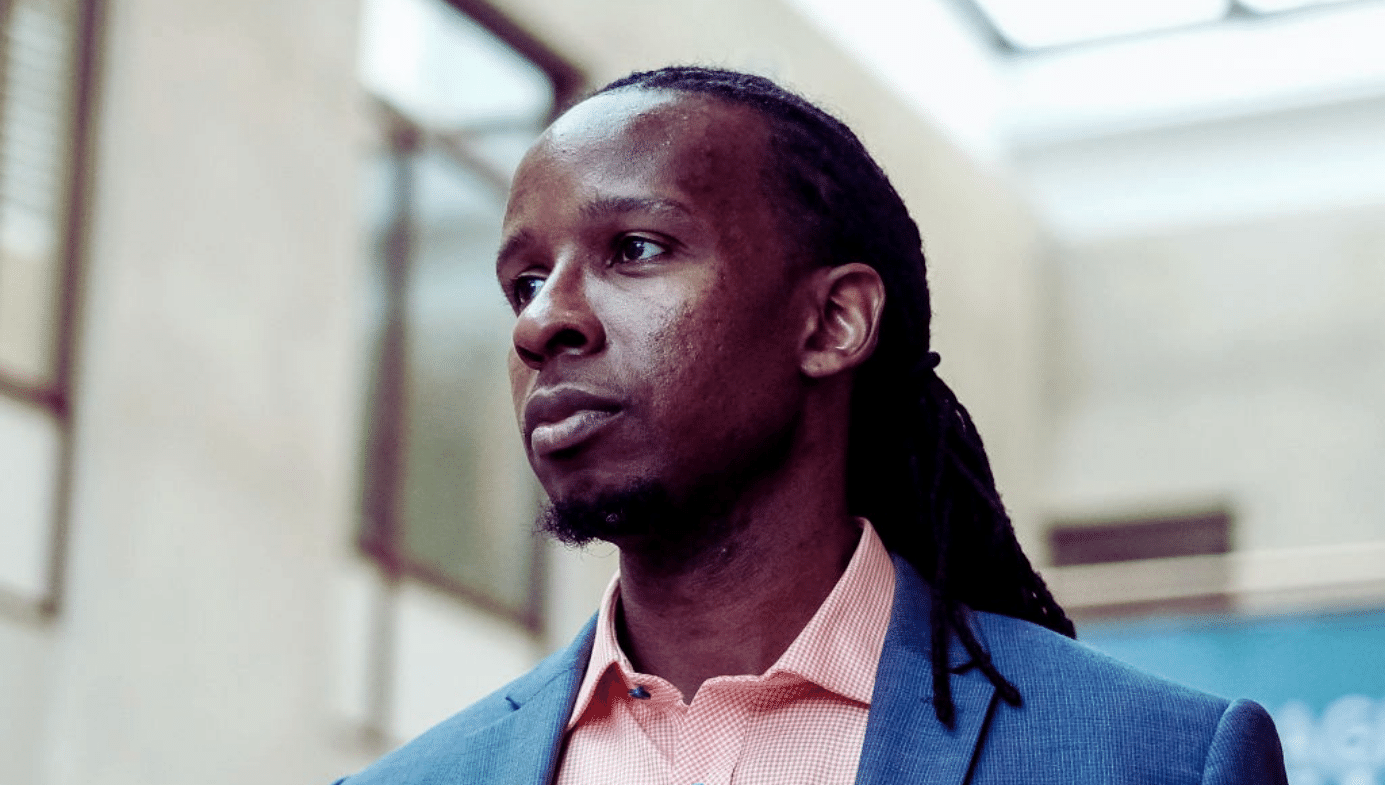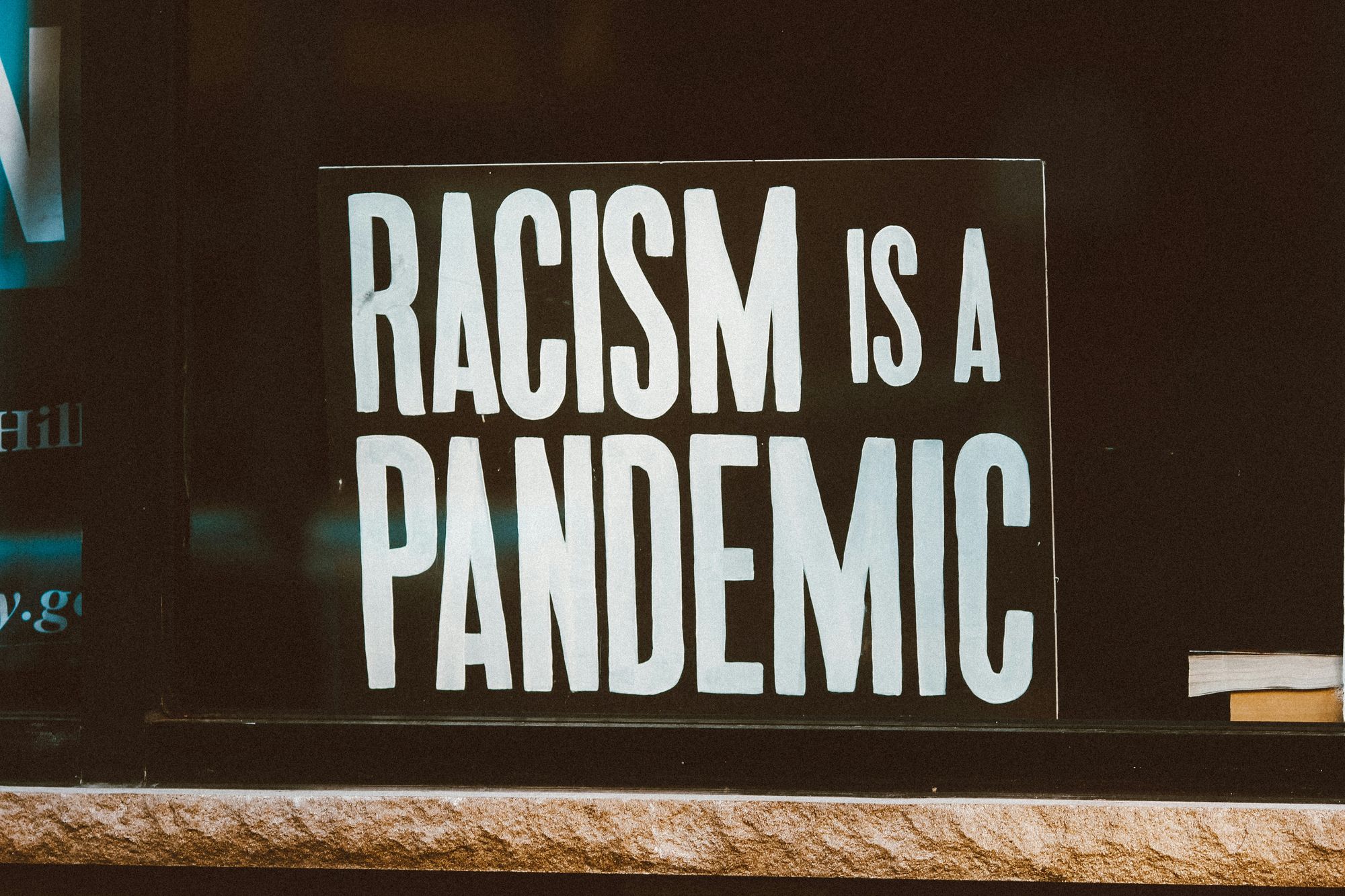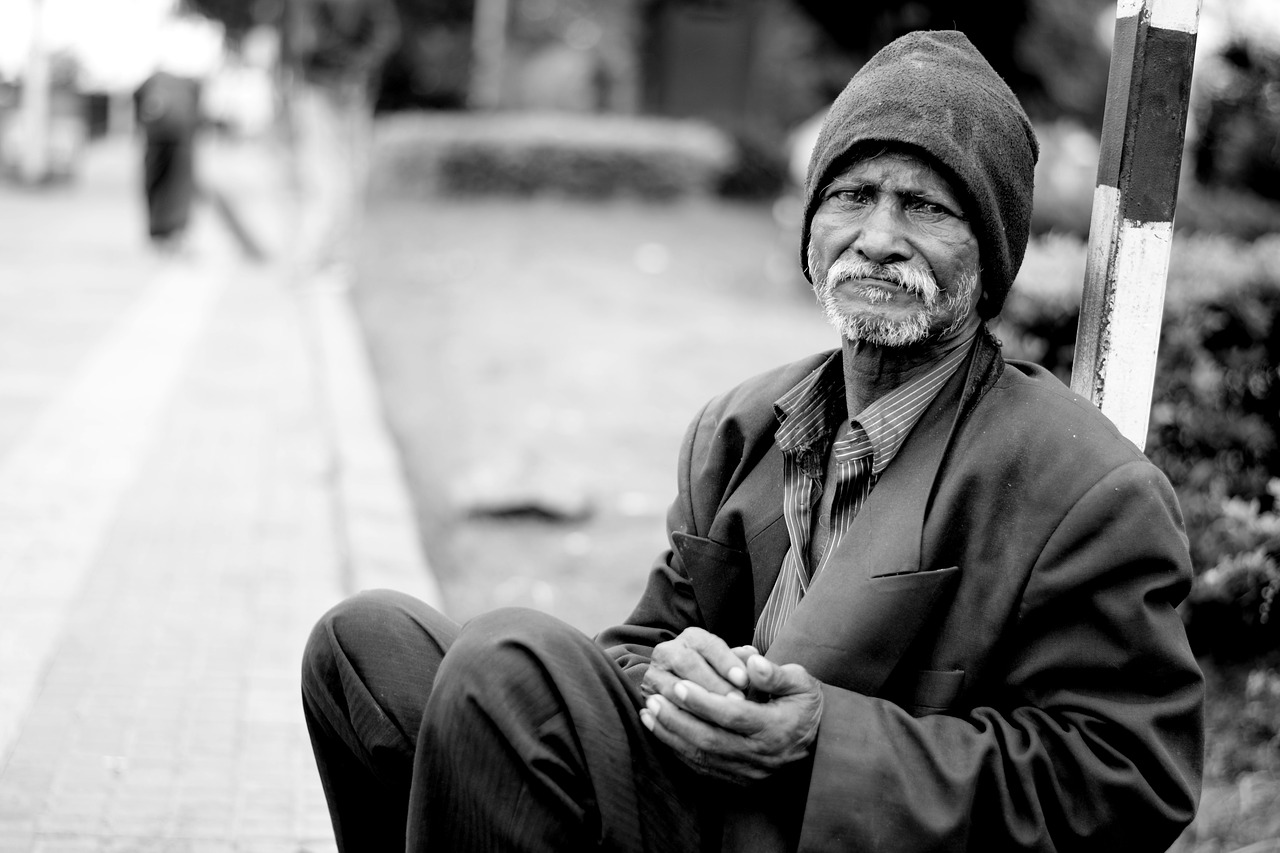Politics
‘Woke Racism’—A Review
How will dropping to one’s knees and admitting one’s privilege end the mass incarceration of black Americans caused by the disastrous failure of the War on Drugs?

A review of Woke Racism: How a New Religion Has Betrayed Black America by John McWhorter. Portfolio, 224 pages. (October, 2021)
If you had told someone a decade ago—after the election of the first black president, and in anticipation of the first black female vice president—that race relations in the United States would devolve into hysteria and incivility, it might have seemed like the counter-historical fantasy of a satirical novelist, in clear violation of the arc of history that, Martin Luther King assured us, “bends toward justice.” Today’s anti-racist activists, in that sense, are not progressives (although they claim to be). They are anachronists who fail to faithfully acknowledge and inhabit the spirit of their time.
In his new book, Woke Racism: How a New Religion Has Betrayed Black America, John McWhorter demonstrates that there is far more Martin Luther than Martin Luther King in today’s anti-racist movement. McWhorter, a linguist and a professor at Columbia University, is a critic of luminous intelligence, and his book’s apparently oxymoronic title plays on Robin DiAngelo’s (equally oxymoronic) Nice Racism: How Progressive White People Perpetuate Racial Harm. DiAngelo’s dubious contention is that white progressives are often more injurious to the cause of racial equity than skinheads or bedsheet bigots, because their racist transgressions are the result of well-meaning ignorance. McWhorter asks the corollary: can even those supposedly enlightened and self-appointed champions of anti-racism (whom he calls “the Elect”) think and act in ways that harm black America?
McWhorter identifies three waves of anti-racist activism in the United States, the first of which was the fight against slavery and legalized segregation. The second was the struggle against racist attitudes, which sought to instill the idea that racial prejudice was a moral defect. The current strain of anti-racist activism constitutes a “third wave,” and like any movement in an advanced stage, it is characteristically decadent. The Elect’s ideology, like so much contemporary social justice, is a grotesque contest of elite moral exhibitionism, inordinately preoccupied with policing speech and regulating behavior. It is fundamentally performative and, above all, pretentious, in both the etymological sense of the word (to pretend) and in its common usage (attempting to impress).
This approach to battling racism tends to appeal to well-educated white people afflicted by a guilty conscience. The only remedy for them—the load-bearing pillar of white America’s new moral responsibility—is a declaration of one’s own “privilege.” This, McWhorter assures us, is not progress or even compassion, it is a form of self-help. “The issue,” he writes, “is not whether I or anyone else thinks white privilege is real, but what we consider the proper response to it.” [Italics in original.] Privilege is indeed real, and making oneself aware of it is morally important, but when employed as a cudgel, it becomes a monstrous prop.

Encouraging black people to see themselves as perpetual victims, while assigning to white people the task of becoming enlightened enough to recognize their own inherent and irredeemable racism creates a culture of soft-bigotry, furnished by polite lies and low expectations. “White people calling themselves our saviors,” McWhorter writes, “make black people look like the dumbest, weakest, most self-indulgent human beings in the history of our species, and teach black people to revel in that status and cherish it as making us special.”
This endless condescension is writ large in DiAngelo’s work, and we can see it in the training seminars now required by many companies, in which things like “logic” and “punctuality” are ascribed to “Whiteness.” Do the people running these seminars really believe that black people can’t be rational and on time? Do they think that science and math are things that only white kids are good at? And, McWhorter asks, if black students perform poorly on standardized tests, is it fair to assume that the test is racist, and should therefore be discontinued, as the Elect now propose? Would it not be better to ensure that those students have access to resources and tutoring? Far from helping anyone, these distortions of essence and aptitude actually hurt the advancement of what is now commonly referred to as “racial equity.”
The goal of third wave anti-racism is ostensibly concerned with “dismantling” racist “structures,” but it is actually an attempt to narrow the discourse and limit the range of honest thought in pursuit of a phony consensus. This is achieved through a ruthless evangelism, which McWhorter manages to condense as follows:
Battling power relations and their discriminatory effects must be the central focus of all human endeavor, be it intellectual, moral, civic, or artistic. Those who resist this focus, or even evidence insufficient adherence to it, must be sharply condemned, deprived of influence, and ostracized.
For support, McWhorter offers a spate of scandals and PR nightmares that would signal, to an alien observer, a kind of collective insanity or Salem-esque panic. One of the salient and most stupefying examples is the case of Alison Roman, a (now-former) food critic at the New York Times. Roman ran into trouble when she criticized two of her contemporaries—model and food writer Chrissy Teigen, and life coach Marie Kondo—for their hypocritical commercialism. Despite coming from different ethnic backgrounds and cultural milieux (Teigen is half-white and half-Thai and was born in America; Kondo was born and raised in Japan), both are assimilable as “people of color” according to the progressive Weltanschauung, so Roman’s criticism placed her under suspicion. What reason could a white New York Times journalist have for criticizing two non-white celebrities, other than sublimated bigotry?

A few days later, singer Lana Del Rey responded to criticisms of her music’s use of sexual themes by pointing out that plenty of other artists, including Nicki Minaj and Beyoncé, also sing about sex. Del Rey was immediately attacked by social media mobs, who denounced her in an endorphin-rush of self-righteousness. These two cases make the Elect’s devotion to rooting out racial bias seem like a protean neurosis, which sees racism even when it isn’t there.
Social media has helped make this kind of behavior easier and more acceptable. McWhorter reminds us that, of the many professional “defenestrations” that occurred in 2020, most were carried out over Slack or Zoom, where empathy-producing mirror neurons (activated when being physically present with someone) were unavailable. Technological mediums have a way of rewiring our psyches to meet their demands: books give us bookish minds, just as television encourages us to see things televisually. It’s not surprising then, that activism inside the hive-mind of social media, which incentivizes performance and attention (virality), will invariably lead to mob justice.
The central tenets of the third wave are provided by what McWhorter pointedly calls a “Catechism of Contradictions.” These include such prescriptions as: embrace multiculturalism, but don’t culturally appropriate; silence is violence, but remember to defer and elevate oppressed voices above your own; more black students should be admitted to top schools (via adjusted test scores and grade standards) in order to foster diversity, but it is racist to acknowledge that students are admitted for these reasons, and it is racist to expect them to represent a “diverse” view.
The catechism, in this case, is not a metaphor: McWhorter earns his subtitle, and he is not being rhetorical. He does not argue that third wave anti-racism is “like” a religion—it is a religion in all but name. It is religious in the infinite elasticity of its arguments and in its claim to be an all-solving theory, which banishes irony and contradiction and treats all opposition as blasphemy. We see also the prayer sessions and genuflections, the insistence on sin, the creation of saints (see the George Floyd murals), and the same extraordinary moral arrogance masquerading as humility and meekness. Church leaders, in sympathy with white protestors at a rally in Cary North Carolina, actually washed black protestors’ feet. This is not a distortion of religious thinking, as critics like Andrew Sullivan (a Catholic) have claimed. It is religious thinking to a T. It is Christianity in drag.
This is most evident in the two texts that have become the synoptic gospels of the anti-racist movement—Robin DiAngelo’s White Fragility and Ibram X. Kendi’s How to Be an Anti-Racist. Both are the confessions of sinners who tell their readers that they too have sinned, and must repent. This requires the acknowledgment of “white privilege”—hence, the celebrity “I Take Responsibility” PSA in the summer of 2020, and Rosanna Arquette’s viral Twitter declaration: “I’m sorry I was born white and privileged. It disgusts me. And I feel so much shame.” These ostentatious outbursts of self-flagellation are quasi-Christian displays of self-incriminating and self-mortifying masochism. Perversely, people want to feel bad about themselves and to be told that they are sinners, so that they can throw themselves on the mercy of their clerics.
One of the pillars of third wave anti-racism is consequentialism—the idea that, because impact supersedes intent, it doesn’t matter what was meant by a statement or action, what matters is how it is received. This is common to both DiAngelo’s self-policing prescriptions and Kendi’s definition of racism, which shifts its focus from perpetrator to victim. At first, this seems like a useful re-definition that relieves us of the need to interrogate one another’s souls. But the consequentialist model is slippery. Rather than deriving claims from available evidence, modern anti-racism affirms a priori conclusions (that people are inherently racist, and that all unequal outcomes have racist origins) and then demands that the evidence be made to support them.
According to Kendi’s own definition, all unequal outcomes are evidence of unequal opportunity, and anything that widens unequal outcomes must therefore be racist. During an episode of his podcast, Ezra Klein asked Kendi if supporting—or even remaining neutral about—a policy like a tax break for capital gains could be considered “racist,” since capital gains tend to differ significantly between black and white Americans. Kendi’s response was that yes, this legislation should be considered racist if it contributes to racial inequality in any way. (Kendi has even recommended a constitutional amendment to guarantee that such policies cannot be passed, and a Department of Anti-Racism be created to monitor it.)
During a subsequent podcast, Klein asked Kendi how he felt about any policy for which the outcomes would be mixed. Lowering interest rates, for example, help people (of all groups) start families, buy homes, and open businesses, but they also push up the value of stocks and thereby increase the disparity in investments between black and white Americans (a policy that Klein described as “taking with one hand and giving with the other”). Kendi didn’t have a good answer to this, other than recommending that people come together and talk about it. Nor should he, because staking all anti-racist behavior on such a consequentialist paradigm breaks down at the slightest introduction of nuance; it can’t even accommodate the simplest policy proposal.
“Systemic racism” is not necessarily an invalid term, it is just too vague to properly serve those who use it in earnest. As a linguist, McWhorter is alert to usage, and he points out that much of third wave anti-racism comes armed with this kind of abstract, Latinate language. Ask the Elect what their goals are, they’ll tell you that they want to “dismantle racist structures” or “decentralize Whiteness.” But press them to explain what these things mean, and they approach tautology. At the Aspen Ideas Festival in 2019, when asked to define racism, Kendi answered with a closed loop: “[It is] a collection of racist policies that lead to racial inequity, that are substantiated by racist ideas.”
Pointing any of this out, however, only invites suspicion. Denial, according to DiAngelo, is tantamount to self-indictment: if you become defensive when someone calls you a racist, it just proves that you are one. The remedy for this, she recommends, is a life of endless contrition, scraping and apologizing for one’s blind spots. At the same time, we are reminded that “white tears” are equally harmful, because black Americans don’t need their struggles validated by the sympathies of white people. This double-bind can be illustrated using DiAngelo’s own example: if you don’t ask your black colleagues how they’re feeling after seeing a story of racial injustice in the news, you are racist because you are ignoring someone else’s pain. But if you ask them how they’re feeling, you may be perceived as attempting to validate their pain, thus diminishing them, which is also racist. This is a morally incoherent house of mirrors from which there is no escape.
It is hard to see how any of this will redress real “structural” inequalities. “People supposedly committed to political transformation,” McWhorter writes, “breezily ignore the yawningly abstract relationship between testifying to ‘privilege’ and forging change in the real world.” How, for example, will DiAngelo’s micro-behavioral prescriptions make poor black communities less poor? How will dropping to one’s knees and admitting one’s privilege end the mass incarceration of black Americans caused by the disastrous failure of the War on Drugs? How will separate graduation ceremonies and separate national anthems raise standards in public schools, boost literacy, or make vocational training more accessible? None of these concrete problems receive a fraction of the attention given to the regulation of conduct and demands for intellectual rewiring.
Like many others, I had hoped that this rewiring had already taken place, and that a new model had presented itself for how we might think about “the state of race” in America. That model was exemplified by Barack Obama. Far from being a definitively “post-racial” moment, Obama’s election seemed to represent a new way of thinking, where a person’s skin color is incidental to their identity and not the whole of it. It appeared to confirm the Enlightenment individualism espoused by Dr. King, which emphasized the content of one’s character.
But today’s anti-racist activism is not liberal. It is the opposite. It encourages a vulgar consanguinity—what D.H. Lawrence called “blood consciousness”—which the Enlightenment sought to overhaul with notions of universalism. As McWhorter observes:
All of the Enlightenment’s focus on individualism, all of modernism’s permission for people to be themselves rather than live bound to preset classifications, falls to pieces before this idea that to be anything but white requires obsession with the fact that you are not white, and diminished by their possibly not seeing you in your totality.
McWhorter knows that the tribal mind is more comfortable cognitively than the individualized mind. Individualism is new, and its psychology is still being grooved. This problem is dramatized in Saul Bellow’s novel Mr. Sammler’s Planet, which takes place at the end of the 1960s, when liberal American Jews, alienated by black power separatism, were embracing Zionism. Artur Sammler, an educated European Jew and Holocaust survivor living in crime-rife New York City, senses a crab-in-bucket struggle settling in between modern Jewry and black America, one that inflames savage instincts and a ghetto mentality. The struggle for civility thus becomes a debasing ordeal. Stanley Crouch (in his introduction to the novel) described it as “what causes a civilization to embrace ruthlessness as the best way to realize its ambitions and handle its fears.” Near the end of the novel, reflecting on the growing pains of post-Enlightenment liberalism, Sammler concludes that it has only been two centuries since people starting thinking of themselves as individuals, and “It is clear that this revolution, a triumph for justice in many ways … has not been altogether a success.”
One of the banes of liberalism in our time is the unwillingness to criticize bad ideas honestly for fear of being misconstrued as a bigot; the assumption of the lowest possible motive when assessing these criticisms is the other. Together, they constitute a strait jacket—they make progress impossible, unless one’s definition of progress is: “Widespread beliefs founded in transparently irrational assumptions, fiercely held by otherwise empirical people, for ulterior, transcendent reasons.” But this, McWhorter tells us, is actually the definition of a church, and like all churches, it should be walled-off from the state.






